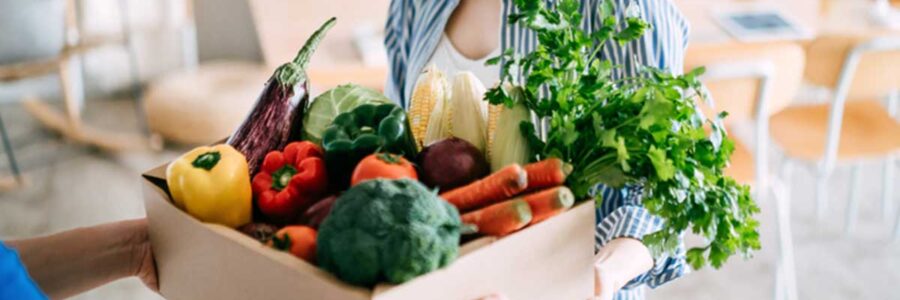Sustainability and organic movements have reshaped our approach to consuming produce in recent years. A newcomer in the food preservation sector, Apeel Sciences, introduces a potentially game-changing solution that extends the freshness of fruits and vegetables while raising critical questions about its environmental impact and implications for organic food.
This article will explore Apeel’s sustainability, its technology, its promise and products, unanswered questions, economic implications, ethical considerations, consumer perception and trust, the broader environmental impact, and the value of local and traditional produce.
Understanding Apeel’s Technology
Apeel Sciences, headquartered in California, offers an innovative approach to prolonging the shelf life of produce. Instead of traditional preservatives or refrigeration, Apeel focuses on the natural skin of fruits and vegetables by developing an edible film coating to prevent moisture loss.[1]
The process appears simple at first glance: Apeel extracts lipids and glycerolipids from plant-derived materials such as seeds, peels, pulp, and stems of fruits and vegetables. These compounds are processed to create Apeel barriers, forming a protective shield.[1-3] However, the specifics of how these barriers are produced and the quality of materials used remain essential for assessing Apeel’s green credentials.
The Promise and the Products
Apeel offers two distinct products: Invisipeel and Edipeel.[1-3] Invisipeel provides early protection in the field, serving as a preservation agent and a pest barrier, potentially reducing the need for chemical pesticides. Edipeel, on the other hand, is applied post-harvest and enhances the shelf life of produce. The U.S. Food and Drug Administration (FDA) has granted Edipeel a “generally recognized as safe” (GRAS) status, but long-term effects and environmental implications warrant further investigation.[4]
These products, marketed as multifaceted solutions, raise concerns about their broader applications and the need for scrutiny.
Raising Eyebrows: Many Unanswered Questions
Apeel’s technology, while promising, leaves several questions unanswered. The extraction process, sourcing of plant materials, and the nature of the ‘leftover’ or ‘already-processed’ materials are not transparent. The term “primarily” derived from organic sources lacks clarity and may not meet stringent organic labeling standards.[5]
Moreover, Apeel’s barrier obscures the natural aging process of produce, making it challenging for consumers to gauge freshness and nutrient density. This poses a significant concern for informed nutritional choices.
Economic Implications and Global Dynamics
Apeel’s products have implications beyond individual consumers and growers. The ability to transport produce over longer distances without refrigeration may expand markets for some but could also disadvantage local growers. Local farmers may struggle to compete with international producers, potentially leading to business closures and reducing the nutritional quality of produce.
Navigating varying international food standards and regulations for Apeel-coated produce raises additional complexities. Clarity about origins and alignment with organic standards is essential.
Ethical Considerations and The Organic Dilemma
Apeel’s technology challenges the core principles of organic food production. Coating organic produce in a substance that hinders natural decay raises ethical questions about whether such produce can be considered ‘organic.’ Additionally, extended transportation times counter the ethos of freshness and local economies.
Consumer Perception and Trust
Consumer trust plays a crucial role in food choices. Apeel’s ability to preserve produce disrupts traditional freshness indicators. Consumers may question the true freshness, harvest date, and travel distance of Apeel-coated produce, eroding trust in a solution designed to reduce food waste and extend freshness.
The Bigger Picture: Environmental Impact and Sustainability
Balancing the benefits of reduced food waste against the potential environmental downsides is essential. While Apeel reduces food waste, it increases transport-related carbon emissions. Plant materials’ production process and sourcing must be scrutinized to ensure overall sustainability.
A Return to Our Roots: The Value of Local and Traditional Produce
Apeel’s introduction highlights the importance of valuing traditional food systems. With its minimal transport, local produce supports local economies, community bonds, and reduced carbon footprints.
Conclusion: The Choice is Ours
Apeel’s entry into the market emphasizes the evolving nature of our food systems. As consumers, we hold the power to shape the future of our food. Our responsibility is to remain informed, ask questions, and prioritize health, community, and sustainability when making food choices. The appeal of Apeel’s extended shelf life must be weighed against its potential impact on our connection to the land and the environment.
References:
- Garfield L. Spray this invisible, edible coating on produce and it will last five times longer. Business Insider, Jan. 16, 2017.
- Dewey C. This start-up can make avocados last twice as long before going bad. Los Angeles Times, June 19, 2018.
- Strom S. An (edible) solution to extend produce’s shelf life. The New York Times, Dec. 13, 2016.
- Gras notice 886, mixture of monoacylglycerides derived from grape seed. (n.d.). https://www.fda.gov/media/135999/download
- “Organic labeling standards.” https://www.ams.usda.gov/grades-standards/organic-labelingstandards.
- “The Global Food System: Trends, Impacts, and Solutions.” Metabolic, www.metabolic.nl/publication/global-food-system-an-analysis/.


